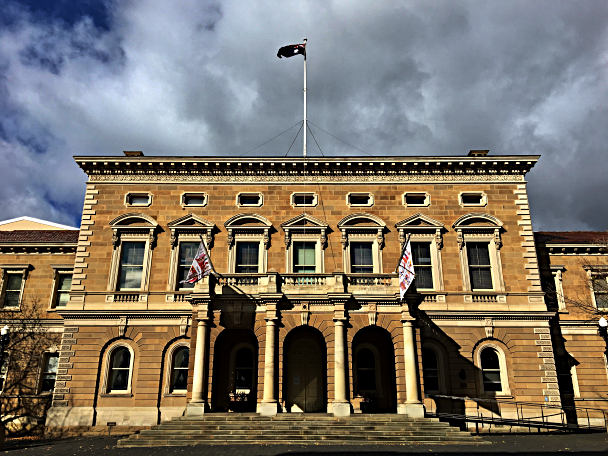Tasmanian government abandons promised donations transparency reform for local government before elections

The Tasmanian government will not legislate to require all candidates contesting local government elections in September and October to disclose political donations despite agreeing to the change more than two years ago.
The government has also baulked at introducing legislation on 46 other local government reforms it previously agreed to.
The Minister for Local Government, Nic Street, announced on Monday afternoon that the government would introduce a bill to parliament to make voting in local government elections compulsory. It would also modify voting procedures so that numbering the ballot paper from one to five would be considered a valid vote, one of 48 reform measures the government agreed to in April 2020.
The Local Government Association of Tasmania, representing municipalities across the state, said it wasn’t consulted on the bill.
The bill has the support of the Property Council of Australia and the Tasmanian Chamber of Commerce and Industry. Neither industry lobby group responded to requests from Tasmanian Inquirer on whether they supported political donations disclosure by all candidates. Nor did they respond when asked whether they had been consulted on the content of the Local Government Amendment (Elections) Bill 2022 before the government announced it on Monday.
Since August 2018, the state’s 263 councillors have had to disclose donations and gifts received from a single donor in a financial year with a cumulative value of $50 or more. But this does not apply to candidates who aren’t sitting members.
Tasmania is the only state in Australia with no donation disclosure requirements for all local council candidates.
There has been a string of local government political donations scandals in other states, prompting tight regulation of the practice. In New South Wales, Queensland and the Australian Capital Territory, donations from property developers and their close associates are banned.
“The delay is inexcusable,” said Roland Browne, a director of the group Election Funding Reform. “Bans on donations by property developers in states such as NSW were introduced to stem the corrupting, corrosive influence of money from property developers and others.”
Endorse, delay, dump
In June 2018, the then minister, Peter Gutwein, announced a major review of Tasmania’s local government legislation with the aim of introducing a bill to parliament in late 2020.
A directions paper was issued by the Department of Premier and Cabinet after an initial round of public consultation. It canvassed compulsory voting as a possibility, but said the level of public support “was not enough to demonstrate that the majority of the community support this approach”.
“Tasmania’s local government elections already attract a high voter turn-out compared with other jurisdictions, and therefore the potential marginal increase in votes that compulsory voting may achieve is not considered enough to justify the increase in the cost burden placed on the community,” the directions paper said.
The government ultimately agreed in April 2020 to support 48 recommendations to reform local government legislation, including that all electoral candidates would be required to declare gifts and donations received during the electoral period.
An online survey (p. 18) of 482 people undertaken by the Department of Premier and Cabinet in 2020 found that 96 per cent of respondents strongly agreed or agreed with this proposition.
The government promised to release a draft Local Government (Elections) Bill for public consultation in 2020, but this was repeatedly delayed, initially by the COVID-19 pandemic. It then proposed that the exposure draft would be released in the first half of 2021, but this timetable also slipped.
The government now wants a bill containing just two reforms to be pushed through parliament early next week without public consultation.
Labor’s spokesperson on local government, Ella Haddad, said the party supported the government’s proposal for compulsory voting but Tasmanians were still waiting to see the details of the full review of the Local Government Act.
The Tasmanian Greens’ local government spokesperson, Rosalie Woodruff, also welcomed the compulsory voting proposal but said she was concerned other proposed reforms needed before October were not included. She called on Street to “explain why he has chosen this singular reform, why now, and why not the rest?”
 @BobBurtonoz
@BobBurtonoz